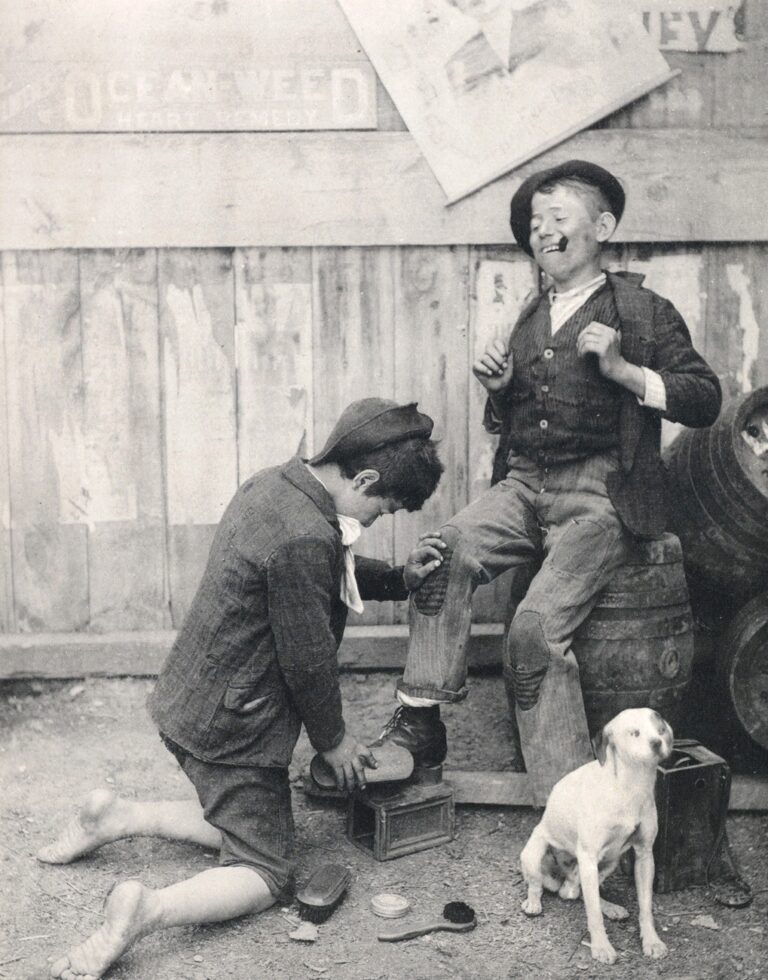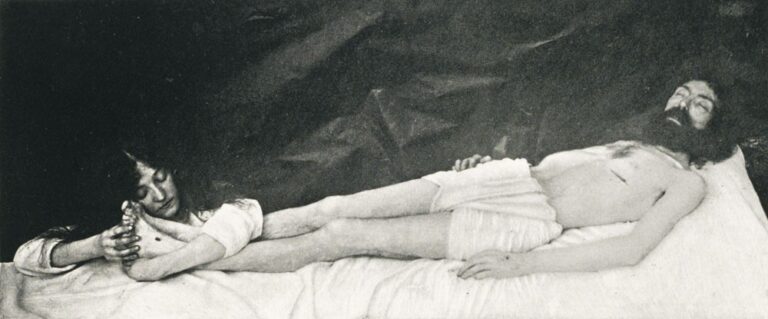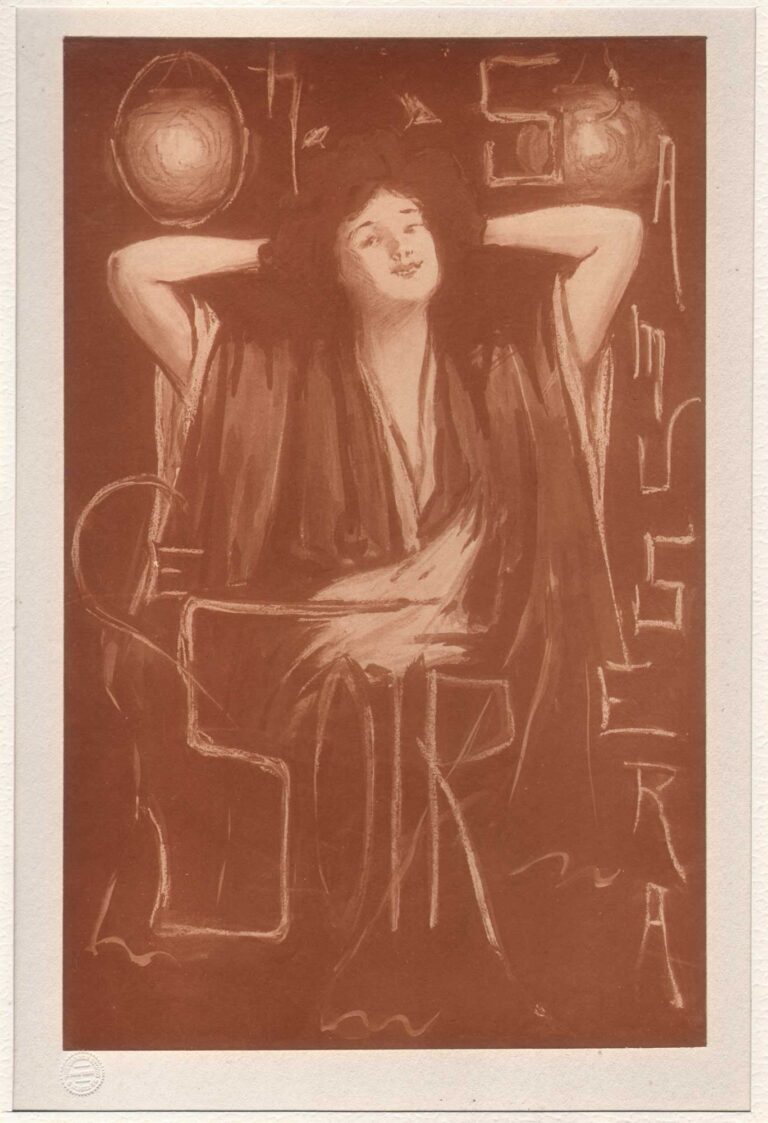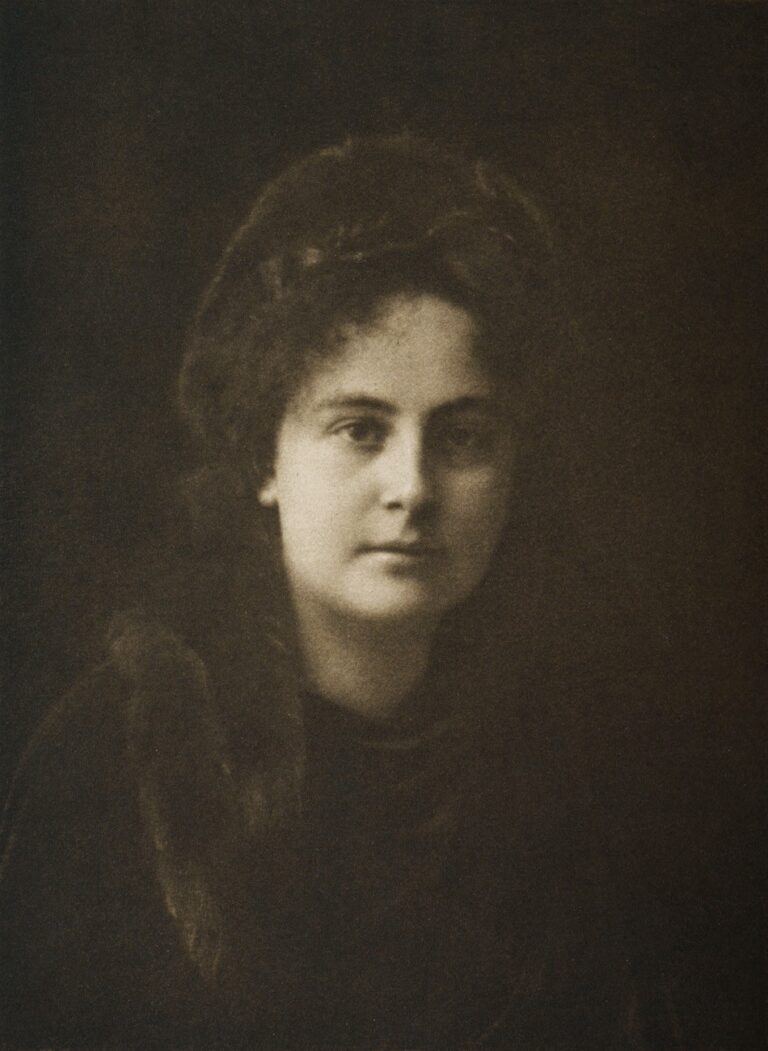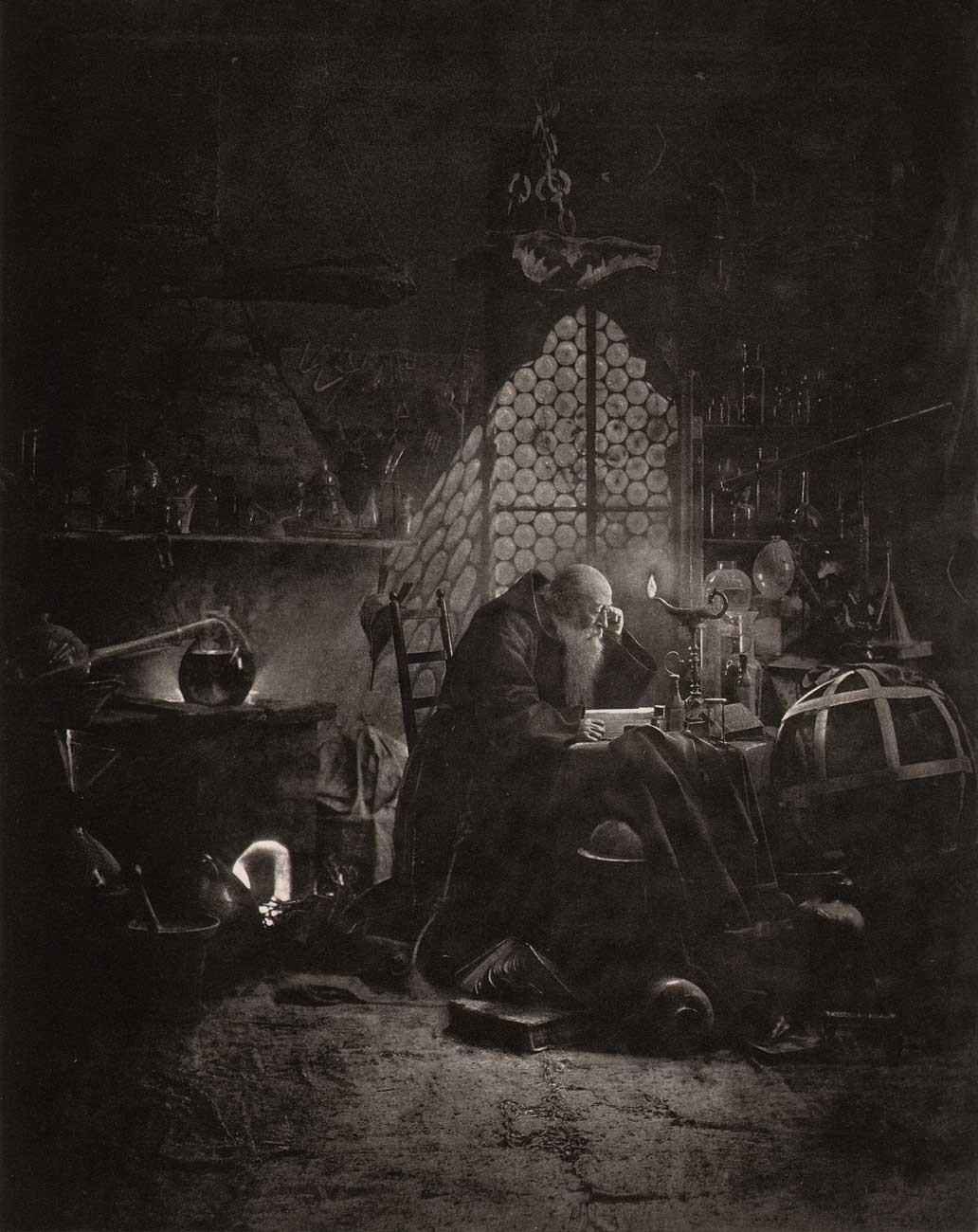
Faust dans son laboratoire
Swiss professional photographer Boissonnas (1858-1946) would sometimes construct elaborate sets in his studio and create photographs after famous paintings. This study of Faust in his laboratory is done in the style of a famous Rembrandt etching. (1.)
Original copy for this entry posted to Facebook on May 13, 2012:
Constructed allegorical and thematic photographs have been particularly popular of late-defining what is collectively understood and seemingly accepted as fine art modern photography, especially in the last 20 years or so. Photographers may construct elaborate stage set productions before a single exposure is made. Or not. The resulting photographs however are often magnificent productions, with the takeaway by the viewer being a photorealistic sensation dwarfing reality itself. Museum shows of late have gone out of their way to display this work on a scale often exceeding in size the wall-sized paintings hanging in adjacent galleries many hundreds of years older. I’m a believer in photography viewed in any format, and if it keeps the conversation going forward, all the better. In keeping in mind trends and historical evolution regarding the medium however, it’s interesting to note constructed photographs are in no way a unique idea. The genre might best be seen in this 1896 photogravure of Faust in his laboratory-an homage itself by the Swiss photographer Frederick Boisonnas to a famous Rembrandt etching of Faust done around 1650.
1. Creative Photography: Aesthetic Trends 1839-1960 :Helmut Gernsheim: Bonanza Books: 1962: p. 131
